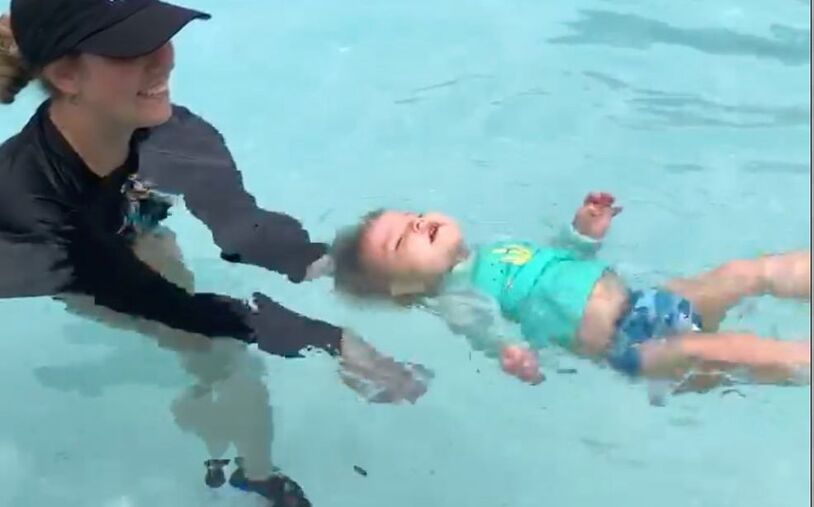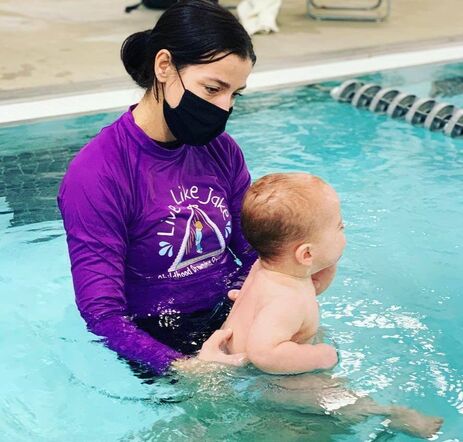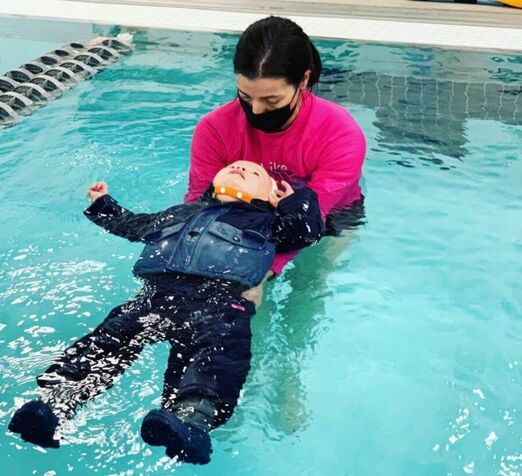Self-Rescue FAQs
What is ISR's mission?
Not one more child drowns!
|
According to the ISR site: "Thousands of ISR lessons are taught every day worldwide as part of our commitment to prevent childhood drowning. Give your child the competence, confidence and skills of aquatic safety with Infant Swimming Resource's Self-Rescue® program. The safest provider of survival swimming lessons for children 6 months to 6 years of age."
|
|
What makes ISR different?
ISR unique program teaches self-rescue to children as young as 6 months old. These children become aquatic problem solvers - able to independently find air and safety.
All ISR instructors undergo intensive and rigorous training that far exceeds any other training program of this kind. Each ISR Instructor is also required to attend a yearly re-certification symposium that includes quality control as well as continuing education. Your education in the area of aquatic safety for your entire family is an integral part of your child's lessons. You will receive access to the "Parent Resource Guide", written by Dr. Harvey Barnett and JoAnn Barnett, which will inform you of every aspect of swimming for infants and children.
ISR
Certified
Instructors
Don't be fooled by programs that say they teach the ISR method. Choose only certified instructor programs.
Why are lessons 5 days a week for only 10 minutes?
First, repetition and consistency are crucial learning elements for young children. Research shows that short, more frequent lessons result in higher retention. Second, most children have fairly short attention spans and cannot focus on the task for longer. We take advantage of the best time for learning. Third, the pool temperature is lower than your child's body temperature. Lessons are work and therefore your child will be losing body heat. Instructors check students regularly for temperature fatigue since this is an indicator of physical fatigue.
Can all children learn these skills?
YES!
ISR instructors are trained to teach children as young as 6 months old how to self-rescue. Children with special needs and different abilities will learn to self-rescue based on their age and development. All certified instructors have access to a team of medical professionals to provide guidance if needed.
How do children handle their lessons?
Children may fuss during the first few lessons because they are in a new environment and around new people. As your child becomes more confident in his/her ability in the water, the fussing will decrease. It is not unlike the first time you tried a new exercise class or were asked to perform a task at work that you'd never done before: the first time you try a new task it is always challenging until you get the hang of it. It is the same for your young child. Your child is learning to perform a skill that he/she has never done before.
Why do the kids swim in clothes?
Because over 85% of the time children fall in the water fully clothed, and we want our students to experience that situation before it is a crisis. If a child has experienced the sensations of being in the water in clothing before an emergency, he/she is less likely to experience panic and more likely to focus on the task at hand.
Swimming in clothes is part of ISR’s check out procedures, which a student completes near the end of his/her session when his/her skills are fully shaped.
Swimming in clothes is part of ISR’s check out procedures, which a student completes near the end of his/her session when his/her skills are fully shaped.
Does my child actually learn to swim?
YES!
ISR believes that part of survival for a child who can walk is swimming. Children learn the swim-float-swim sequence so that they can get to safety on their own. The difference in our program is that they will learn swimming AND survival skills and how to be an aquatic problem solver.
|
Fill out our ISR interest form today!
|
Superior Training does not assist with scheduling for Self-Rescue lessons as the instructors maintain their own schedules. Please direct all scheduling questions to the appropriate instructor.
Annie: [email protected]
Annie: [email protected]






